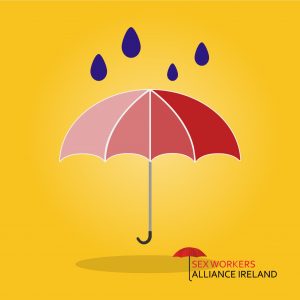
In 2017 Ireland introduced client criminalisation, increased penalties for sex workers co-working in a bid to ‘End Demand’ of sex work and thereby somehow reduce people being trafficked into Ireland. This blanket policy has had far-reaching consequences which we warned about prior to its introduction. Only two clients have been prosecuted under the law. Many more sex workers have been arrested, deported or threatened with deportation for working together for safety. Violence against sex workers has increased by 92% while trust in Gardaí has decreased to 1%.
It has also failed to reduce trafficking in Ireland. Reports funded by the Department of Justice show that we are underestimating the number of trafficking victims in Ireland by 38%. Convictions of traffickers have fallen while the number of victims identified has increased since 2017.
Organised crime flourishes in industries where a good or service is criminalised in some way. An Organised Crime in Prostitution Unit of the Gardaí was recently established, however, this unit enforces laws that marginalise sex workers and damage trust in the Gardaí. Criminalising any aspect of sex work forces it underground, away from services and justice. Politicians who support the prohibition of sex work are misguidedly supporting organised crime.
The review of the law which began in 2020 gives us an opportunity to reimagine our anti-trafficking efforts as well as putting the health and safety of those in the sex industry first. We need to tackle the reasons why trafficking exists such as repressive border regimes which increase exploitation. We need a firewall between immigration and the sex work unit of the Gardaí so that any undocumented person will feel free to report abuse without fear of deportation.
This review could also highlight that sex workers ourselves are best placed to highlight exploitation in our industry. Aoife Bloom, board member of the Sex Workers Alliance Ireland (SWAI) says “No one wants trafficking and abuse to end more than sex workers ourselves. Creating laws that deal with sex trafficking separate to those that deal with other forms of labour trafficking have become anti-migrant or anti-migration measures. Our brothel-keeping laws have been applied in a racist way as highlighted by IHREC. Sex work is an economic activity and sex workers need to be able to enjoy labour rights that other workers enjoy. Trafficking can be tackled by strong unions and proper reporting mechanisms as in other sectors of the economy, but our laws prevent sex workers from doing this and it makes us more vulnerable.”
She continues “SWAI calls for the decriminalisation of sex work along with PICUM Members (Platform for International Cooperation on Undocumented Migrants, International Labour Organization and The Global Alliance Against Traffic in Women (GAATW). Decriminalisation of sex work does not decriminalise trafficking but will ensure that the Gardaí can utilise the best resource they have against sex trafficking, sex worker ourselves.”
